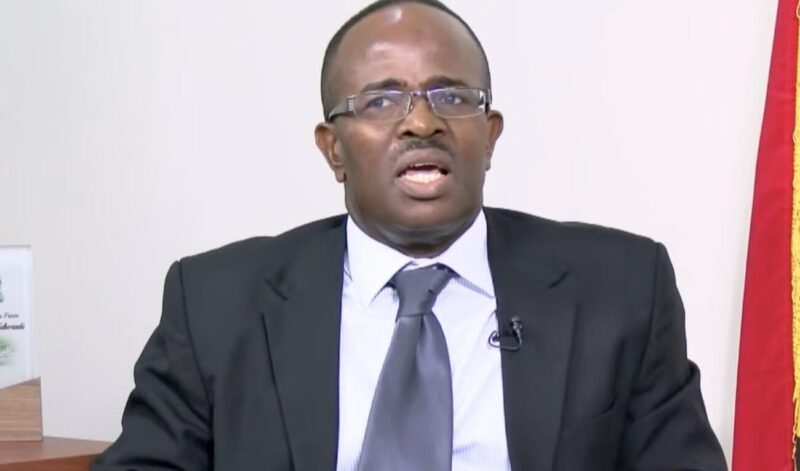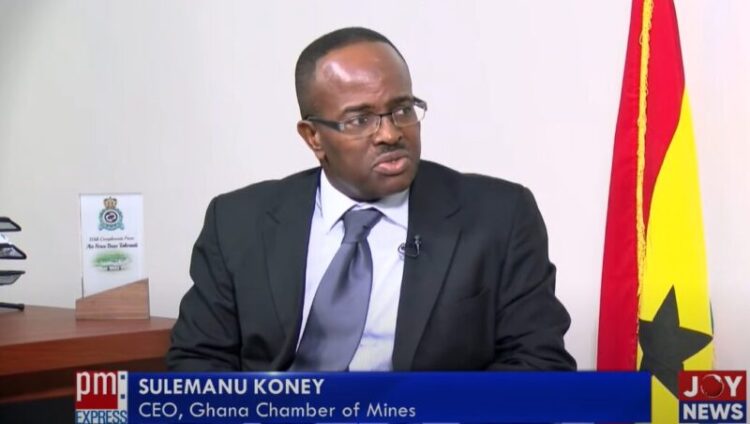
Audio By Carbonatix
The CEO of the Ghana Chamber of Mines, Sulemanu Koney, has provided critical insights into the role of the mining sector in stabilising the local currency.
Speaking to Joy News’ PM Express Business Edition on Thursday, September 19, he stated that without the contributions of the mining industry, the Ghanaian cedi could be in far worse shape, possibly reaching ¢25 to $1.
He countered arguments suggesting that the mining industry has not sufficiently impacted the local currency, stating, “Trust me, if you didn’t have the mining industry, we would probably be heading to around ¢25 to $1.”
Mr Koney acknowledged that while there are misconceptions about the industry’s contribution to the economy, he stressed that the facts speak for themselves.
Read also: BoG says it capped allocation to ‘Gold for Oil’ policy in line with IMF directive
According to him, a significant portion of the country’s foreign exchange earnings comes from mining, and initiatives like the collaboration between the Bank of Ghana and mining companies to sell part of their gold reserves have played a crucial role in shoring up the currency.

“Over the last few years, we’ve had a collaboration with the Bank of Ghana where part of our gold is sold to them as part of their reserves. This has been voluntary, not compulsory, but we still do it,” Mr Koney explained.
In response to claims that Ghana’s mining sector should bolster its gold reserves more effectively like some non-mining nations, he highlighted a key difference: “Countries that don’t mine gold often have huge reserves, but that’s because they play in a different space.
"Mining companies are not in that business. We bring the foreign exchange into the country to run our operations.”
Read also: Analysis: Ghana’s Gold-for-Oil gamble
He also pointed out that mining companies contribute to the economy by purchasing various inputs, including labour, energy, and consumables, all of which are paid for in cedis.
“You have to pay for labour, energy, and other inputs locally. How do you do that if you don’t bring money into the country? Naturally, a significant portion of revenue comes back,” Koney said.
Latest Stories
-
Dont publish: Baba Jamal wins NDC Ayawaso East Primaries
45 seconds -
NDC Ayawaso East primary: Baba Jamal expresses confidence after voting
5 minutes -
Mahama approves operating licence for UMaT mining initiative
13 minutes -
NDC condemns vote-buying in Ayawaso East primaries, launches investigation
27 minutes -
Ayawaso East NDC primary: Sorting and counting underway after voting ends
58 minutes -
Africa must build its own table, not remain on the menu — Ace Anan Ankomah
1 hour -
US wants Russia and Ukraine to end war by June, says Zelensky
1 hour -
Let’s not politicise inflation – Kwadwo Poku urges NDC
2 hours -
(Ace Ankomah) At our own table, with our own menu: Africa’s moment of reckoning – again
2 hours -
Land dispute sparks clash in Kpandai; 3 motorbikes burnt
2 hours -
15 injured as Ford Transit overturns at Gomoa Onyaazde
2 hours -
Government pays School Feeding caterers 2025/26 first term feeding grant
2 hours -
Mz Nana, other gospel artistes lead worship at celebration of life for Eno Baatanpa Foundation CEO
4 hours -
Ayawaso East NDC Primary: Baba Jamal campaign distributes TV sets, food to delegates
4 hours -
MzNana & Obaapa Christy unite on soul-stirring gospel anthem Ahoto’
4 hours

